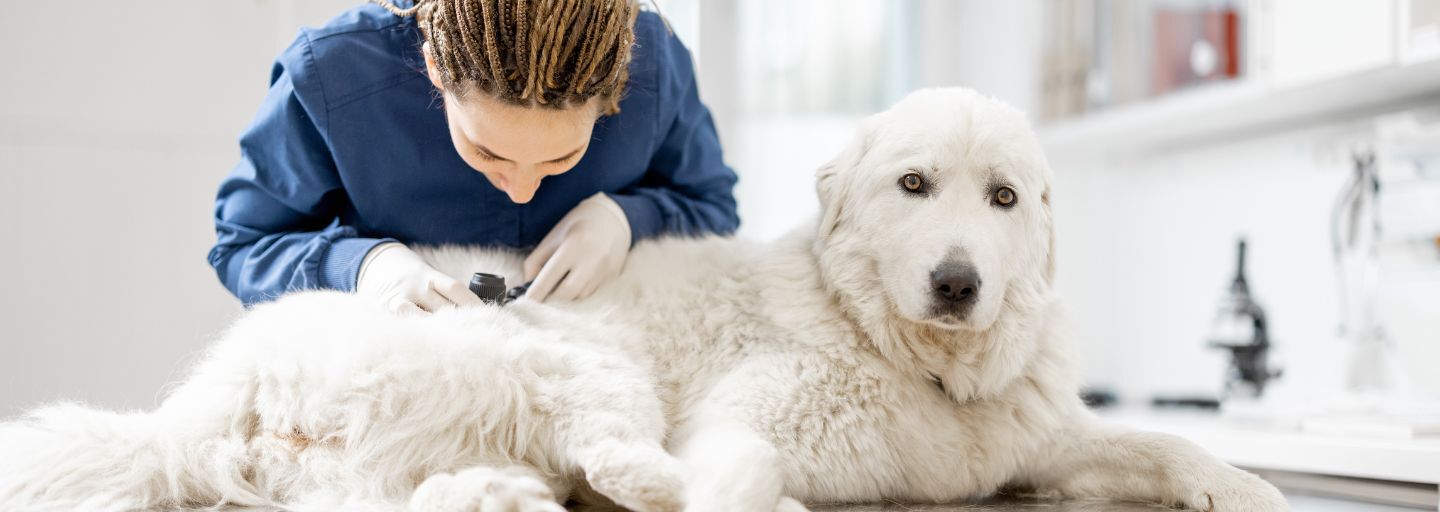As dog owners, we want our furry friends to be happy and healthy, and that includes maintaining their skin health. Just like humans, dogs can experience a variety of skin conditions that can cause discomfort and irritation. In this article, we will explore some common skin conditions in dogs, their causes, symptoms, and potential treatment options, helping you better understand and address your canine companion's skin health.
Allergies are a prevalent cause of skin issues in dogs. They can be triggered by various factors, including food, environmental allergens (such as pollen or dust mites), or contact with certain substances.
- Common symptoms: Itching, redness, rashes, hair loss, and recurrent ear infections.
- Treatment: Identifying and eliminating the allergen, along with veterinary guidance, may involve dietary changes, (such as antihistamines or corticosteroids), allergy shots (immunotherapy), topical treatments (such as medicated shampoos or creams).
Fleas are external parasites that feed on the blood of dogs. When a dog is infested with fleas, the bites can cause intense itching and discomfort. Some dogs may develop an allergic reaction to flea saliva, leading to a condition called flea allergy dermatitis (FAD). Flea infestations can occur when dogs come into contact with fleas in their environment or from other infested animals.
- Common symptoms: Intense itching, redness, flea dirt (small black specks) on the skin, hair loss.
- Treatment: Regular flea prevention (topical treatments, oral medications), thorough cleaning of the dog's environment, treating any existing fleas on the dog with appropriate products, such as flea baths or spot-on treatments.
Bacterial or Fungal Infections
Bacterial or fungal infections can occur on the skin's surface or in deeper layers, Bacteria or fungi can invade the skin when there is a break in the skin barrier, such as from scratches, wounds, or underlying skin conditions. These infections can be caused by various bacteria or fungi, and they thrive in warm and moist environments. It can lead to various skin conditions, including pyoderma (bacterial skin infection), ringworm (a fungal infection), or yeast infections.
- Common symptoms: Redness, itching, hair loss, scaly patches, or a foul odour.
- Treatment: Typically involves topical or oral medications prescribed by a veterinarian, along with proper hygiene and environmental management.
Hot Spots
Hot spots, also known as acute moist dermatitis, are localized areas of inflamed and infected skin. They often occur due to excessive licking, scratching, or chewing, which can be triggered by allergies, insect bites, or skin irritations. The constant moisture and self-trauma create an ideal environment for bacteria to grow, leading to hot spots.
- Common symptoms: Hot spots appear as red, moist, and painful lesions that can rapidly worsen if left untreated.
- Treatment: Involves cleaning the affected area, topical medications, and addressing the underlying cause to prevent recurrence.
Dry Skin
Just like humans, dogs can experience dry skin, especially during dry weather. Dry skin in dogs can be caused by various factors, including environmental conditions (such as low humidity or cold weather), nutritional deficiencies, underlying health conditions, or certain grooming products that strip the natural oils from the skin. Some dog breeds are more prone to dry skin due to their genetics or specific coat characteristics.
- Common symptoms: Dry skin can lead to itching, flaking, and discomfort.
- Treatment: Providing proper hydration, a balanced diet rich in essential fatty acids, and regular grooming can help maintain the skin's moisture and prevent dryness. Additionally, using moisturizing shampoos or conditioners specifically formulated for dogs can be beneficial.
Seborrhoea
Seborrhoea is a skin condition characterized by excessive oil production. It can be primary (inherited) or secondary to an underlying condition such as allergies, hormonal imbalances, or certain medical conditions. The excessive oil production can lead to greasy, scaly, or flaky skin, and it can create an environment that promotes the growth of bacteria or fungi.
- Common symptoms: Greasy, scaly, or flaky skin, odour.
- Treatment: Medicated shampoos (such as those containing sulphur or salicylic acid), topical treatments (such as creams or lotions), oral medications (such as fatty acid supplements or antibiotics if secondary infection is present), addressing underlying causes (such as allergies or hormonal imbalances).
Mange
Mange is a parasitic skin condition caused by mites. It can manifest as sarcoptic mange (scabies) or demodectic mange. Sarcoptic mange, also known as scabies, is caused by Sarcoptes scabiei mites, while demodectic mange is caused by Demodex mites. These mites burrow into the skin, causing intense itching, hair loss, and skin inflammation. Mange can be transmitted through direct contact with infected animals or their environment.
- Common symptoms: intense itching, hair loss, redness, and crusted or scaly skin.
- Treatment: Involves specific medications prescribed by a veterinarian to eliminate the mites and manage the associated skin inflammation.
If you notice any skin abnormalities or changes in your dog's coat or behaviour, it is important to consult with a veterinarian for a proper diagnosis and treatment plan. They can perform a thorough examination, conduct tests if necessary, and recommend appropriate treatments based on the specific skin condition.
In addition to veterinary care, maintaining good overall health through a balanced diet, regular grooming, and proper hygiene practices can contribute to your dog's skin health. By being attentive to your dog's skin, addressing any issues promptly, and following your veterinarian's guidance, you can help ensure your canine companion's skin remains healthy and comfortable.







